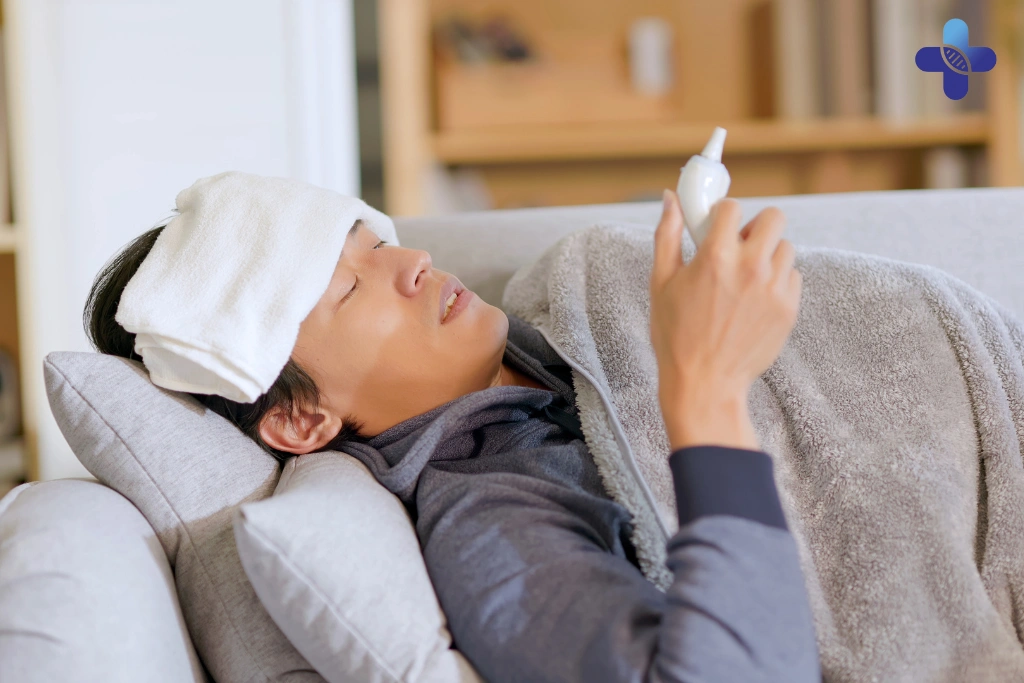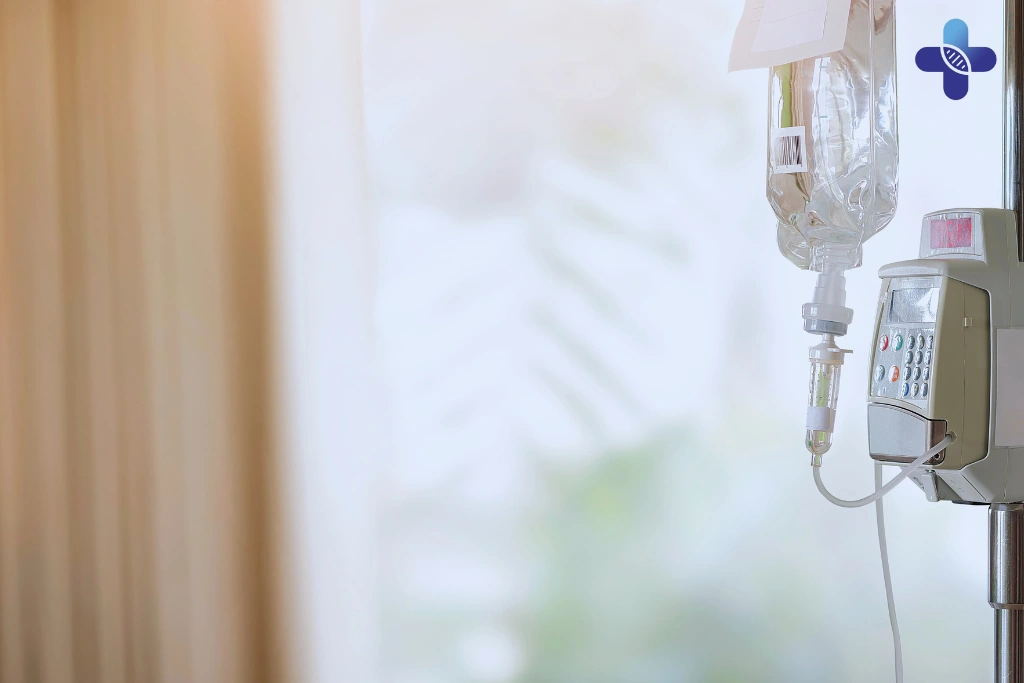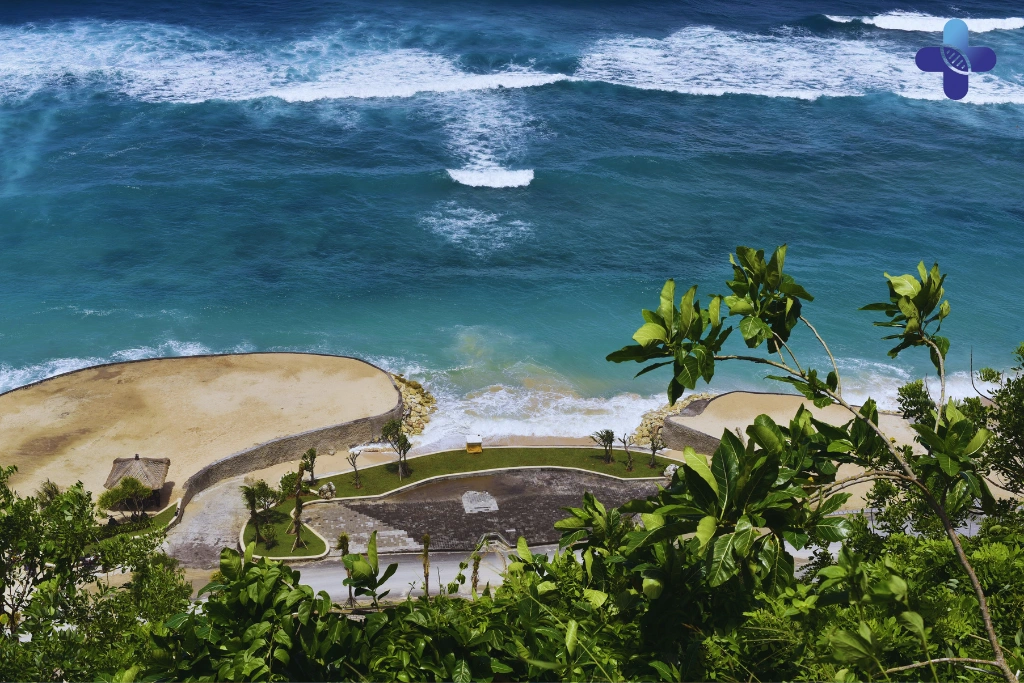Waking up with a fever in Bali can be an unsettling experience, especially when you’re far from home and unsure of what’s causing it. Whether it’s a tropical infection like Dengue, a common cold, or something else entirely, a fever is your body’s signal that it’s fighting an illness—and it must be handled with care. At Life Everyouth Bali, with medical clinics in Sanur and Jimbaran, we understand how urgent and confusing this moment can feel. This guide will help you manage your symptoms safely, understand what steps to take first, and explain why professional assessment—not self-diagnosis—is essential when dealing with a fever in Bali.
Woke Up With a Fever in Bali? A Doctor’s Guide to Safe Management

Developing a fever on holiday can be worrying, especially in the tropics. Whether you’re in Bali for a peaceful retreat or a beach adventure, waking up with chills, body aches, or a high temperature can feel alarming. A fever in Bali isn’t just uncomfortable—it could be a sign of tropical infections like Dengue or Typhoid, which require professional evaluation. At Life Everyouth Bali, we want you to know that a fever is your body’s way of signaling an internal battle, and the key is to respond calmly and responsibly.
This article offers step-by-step guidance to help you manage symptoms safely and know when to involve a medical clinic in Bali. With branches in Sanur and Jimbaran, Life Everyouth provides immediate access to trusted care, including IV Drip Therapy and 24/7 Doctor On Call services. Don’t rush into self-diagnosis or take the wrong medications—let this guide show you what to do next and how to recover quickly while staying safe on the island.
Step 1: Don’t Guess, Measure
The first thing you should do when you wake up with a fever in Bali is to measure your body temperature accurately. Many travelers make the mistake of guessing based on how they feel—chills, fatigue, or sweating—but without a thermometer, it’s impossible to know how high your fever really is. At Life Everyouth Bali, we always advise starting with a clear number before making any treatment decisions.
Use a digital thermometer under the tongue or armpit and wait for a stable reading. A mild fever is generally considered to be between 37.5°C and 38.9°C, while anything above 39°C is classified as a high fever that may require medical attention. In tropical climates like Bali, where infections such as Dengue or Typhoid are more common, it’s especially important to monitor these numbers closely.
If you’re staying near Sanur or Jimbaran, our medical clinic in Bali can assist you with on-site temperature checks and medical consultations. Life Everyouth Bali offers both in-clinic and Doctor On Call services, so you don’t have to leave your villa or hotel when you’re feeling unwell. Measuring your fever is the first and most responsible step toward a safe recovery.
Step 2: Safe At-Home Symptom Management
Managing a fever in Bali should always begin with safe, proven methods that reduce symptoms without putting you at additional risk. At Life Everyouth Bali, we emphasize home care that supports your body while you wait for a proper medical assessment—especially if you’re unsure whether it’s a viral illness or something more serious like Dengue.
The ONLY Recommended Fever Reducer
Paracetamol (also known as Acetaminophen) is the only fever reducer we recommend for use at home in Bali. It’s effective at lowering body temperature and relieving aches, and most importantly, it does not affect your blood’s clotting ability—unlike other common medications. Life Everyouth Medical Clinic in Bali advises all patients, especially travelers near our Sanur and Jimbaran branches, to take Paracetamol at proper intervals and avoid doubling doses out of panic. Never combine it with other medications unless instructed by a doctor.
⚠️ The Ibuprofen Warning
Avoid Ibuprofen (Advil, Nurofen), Aspirin, or any NSAIDs unless a doctor has ruled out Dengue Fever through a proper diagnosis. These medications can thin your blood and may significantly increase the risk of internal bleeding if your platelet count is already low due to Dengue. At Life Everyouth Bali, we’ve seen how seemingly harmless over-the-counter drugs can complicate tropical infections. Until you’ve been medically assessed, it’s safest to stay away from these medications entirely and rely only on Paracetamol.
The #1 Priority: Aggressive Hydration
Fever in Bali, especially under the tropical sun, accelerates fluid loss through sweat and respiration. Even if you’re not moving much, your body is using extra energy and water to fight the infection. That’s why hydration isn’t just helpful—it’s essential. Drink small, frequent sips of water or an electrolyte solution to keep your body balanced. At Life Everyouth Bali, we often see patients who feel drastically better once dehydration is corrected, especially with our IV Drip Flu Relief therapy available in both Sanur and Jimbaran. Don’t wait until you’re dizzy or nauseous—start rehydrating early and often.
Step 3: Understanding the Cause (This is a Doctor’s Job)

When it comes to fever in Bali, understanding the underlying cause is not something you should attempt on your own. Many tropical illnesses share nearly identical early symptoms—such as fever, chills, muscle aches, and fatigue—which makes it almost impossible to know what you’re dealing with without medical evaluation. At Life Everyouth Bali, we see how flu, Dengue Fever, Typhoid, and even early COVID-19 cases can all begin with the same vague signs.
Why Symptoms Overlap in the Tropics
The tropics can mask the true cause of illness with overlapping symptoms. For instance, a fever with joint pain might indicate the flu or Dengue; a persistent headache could mean Typhoid or dehydration. Even trained professionals don’t make assumptions without a proper blood test or clinical assessment. This is why Life Everyouth, with medical clinics in Sanur and Jimbaran, stresses the importance of professional diagnosis when you experience a fever in Bali.
Because of this overlap, trying to self-diagnose is unsafe. The only way to know the true cause of your fever is through a professional medical assessment. Our 24/7 Doctor on Call service can diagnose you in the comfort of your hotel room, whether you’re staying in Sanur, Jimbaran, or elsewhere in Bali. Don’t take chances with your health—let our Bali medical clinic handle the uncertainty for you.
Step 4: Supporting Your Recovery Medically
Once a diagnosis has been made—whether it’s influenza, a viral infection, or another illness—your focus should shift to effective recovery. One of the biggest barriers to feeling better after a fever in Bali is dehydration, which not only weakens the body but also delays your return to normal energy levels. At Life Everyouth Bali, we emphasize that post-diagnosis care is just as important as identifying the cause, especially in a tropical climate.
This is where medical support from a trusted Bali medical clinic can make a significant difference. Life Everyouth, with locations in Sanur and Jimbaran, offers IV Drip Therapy tailored to travelers and expats recovering from illness. Our team sees daily how dehydration and vitamin depletion prolong symptoms like fatigue, dizziness, and brain fog—especially after a high fever. Oral rehydration is helpful, but in moderate to severe cases, an intravenous solution is faster and more effective.
Once a diagnosis like influenza is confirmed, managing your symptoms is key. A fever rapidly dehydrates you, making you feel weak and prolonging recovery. Our Flu Relief IV Drip is a powerful tool to restore hydration and provide high-dose vitamins to support your body’s fight. Ask your doctor if an IV drip is a suitable part of your recovery plan. At Life Everyouth Bali, your safe recovery is our mission—wherever you are on the island.
Conclusion Got a Fever in Bali? A Doctor’s Guide to Causes & Safe Treatment

Managing a fever in Bali can be challenging, especially when you’re unsure what’s causing it. But with the right steps—measuring your temperature, taking only safe medications like Paracetamol, and staying hydrated—you can protect your health while avoiding unnecessary risks. At Life Everyouth Bali, we’re here to support you with reliable guidance, accessible care, and trusted medical services through our clinics in Sanur and Jimbaran.
Still, the most important decision you can make is to leave the diagnosis to professionals. In a tropical environment where symptoms overlap, self-diagnosis can be dangerous. Let our experienced doctors determine the cause, and if needed, support your recovery with IV Drip therapy designed to rehydrate and restore your energy. The fastest path to wellness always begins with accurate diagnosis and strong medical support—from a Bali medical clinic you can trust.
Frequently Asked Questions (FAQ) Got a Fever in Bali? A Doctor’s Guide to Causes & Safe Treatment
What temperature is considered a high fever that needs a doctor’s attention?
A fever above 39°C (102.2°F) that does not respond to Paracetamol within a few hours is considered high and should be evaluated by a medical professional. If the fever persists for more than 48 hours—especially in Bali’s tropical climate where Dengue and Typhoid are possible—it’s important to contact a Medical Clinic in Bali like Life Everyouth in Sanur or Jimbaran for proper assessment and treatment.
Why exactly should I avoid Ibuprofen if I have a fever in Bali?
Ibuprofen, Aspirin, and other NSAIDs can increase the risk of bleeding, especially if you’re unknowingly infected with Dengue Fever. Dengue often lowers your platelet count, and these medications can impair clotting function. That’s why Life Everyouth Bali advises against taking any NSAIDs until Dengue has been ruled out through a blood test at a trusted Bali Medical Clinic.
I have a high fever and chills. What does this mean?
Chills occur when your body tries to raise its core temperature in response to infection. This is a common physiological reaction during the onset of fever. At Life Everyouth Bali, we see many patients who present with chills during viral infections, including the flu or even early stages of Dengue. While chills alone aren’t dangerous, they indicate your immune system is active—and you should monitor your symptoms closely.
How can I tell if my fever is caused by Dengue?
It’s impossible to know for certain without a blood test. However, classic signs of Dengue include a sudden high fever, severe headache (especially behind the eyes), muscle and joint pain, and skin sensitivity. These symptoms can overlap with the flu or Typhoid, so self-diagnosis is risky. Life Everyouth Medical Clinic in Bali offers fast diagnostics to confirm or rule out Dengue, especially at our Sanur and Jimbaran branches.
How long is “too long” to have a fever before calling a doctor?
If your fever lasts more than 48 hours, or rises above 39°C even after Paracetamol, you should contact a medical professional immediately. Prolonged fever could signal something more serious. At Life Everyouth Bali, we recommend using our 24/7 Doctor On Call service, available throughout Bali, so you don’t have to travel while unwell.
Is it normal to have no appetite when you have a fever?
Yes, loss of appetite is a natural response when your body is fighting an infection. Your energy is redirected toward immune defense rather than digestion. Focus on staying hydrated—fluids are more important than food during the first 24–48 hours of fever. The clinical team at Life Everyouth in Sanur and Jimbaran can also support you with IV Drips if oral hydration becomes difficult.
How can I stay hydrated if I also feel nauseous?
Sip small amounts of water, coconut water, or oral rehydration solutions slowly and frequently. If nausea persists and you’re unable to keep liquids down, medical intervention is necessary. Life Everyouth Bali provides IV Drip Therapy that bypasses the digestive system and replenishes lost fluids efficiently—available at our Medical Clinic in Bali or through our mobile Doctor On Call team.
Can a simple cold cause a high fever?
Typically, a cold causes only mild fever (below 38.5°C). If your fever is significantly higher, it’s more likely to be influenza or another infection. In the tropics, don’t assume it’s “just a cold.” Contact Life Everyouth Medical Clinic in Bali for proper evaluation, especially if symptoms escalate.
How does an IV Drip help when you have a fever?
When you have a fever, your body loses large amounts of fluids and electrolytes through sweat and breathing. Our Flu Relief IV Drip at Life Everyouth Bali replenishes fluids rapidly, delivers essential vitamins like Vitamin C and B-complex, and helps stabilize your energy levels. It’s especially effective when oral hydration is not enough or if you’re recovering from viral infections.
My child has a fever in Bali. What should I do?
Children can become dehydrated more quickly and may not be able to express how they feel. We recommend having any child with a fever seen by a doctor within 24 hours, especially in Bali. Life Everyouth offers family-friendly medical care at our Sanur and Jimbaran clinics, as well as home visits to help parents manage fevers safely and calmly.
